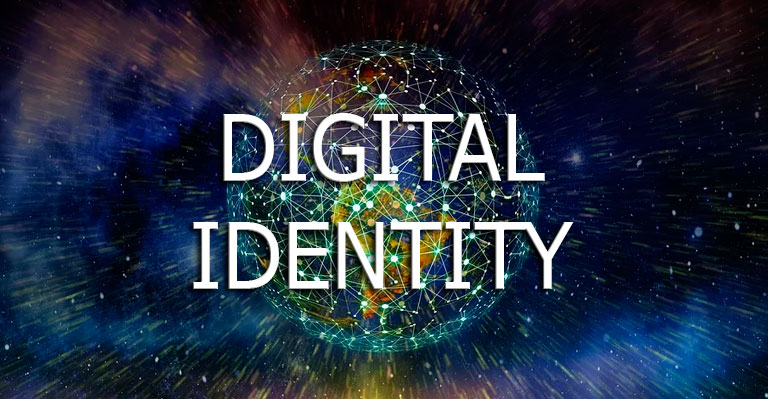The digital world has changed lots of aspects of our daily life. We do most of our activities online, and our first focus is on digital activities. Business-focused activities, banking, relationships, and many other parts of our lives are going on in the digital world. The shift in all of those activities needs change in some fundamental managing and processing solutions. Identity management is one of those that requires a complete transformation and has resulted in a new concept called Digital Identity.
Digital identity is one of the crucial parts of online life. Every online business and individual needs that information to work. Companies need our identity data so they can individually-focused services. We need that to have something to represent ourselves in the digital world. Most importantly, the data should be protected somewhere very safe, and blockchain can offer the best solution for securing and managing that.
What Is Digital Identity?
Digital identity is the digital representation of identity for individuals, businesses, and even devices. Information like name, date of birth, sex, etc., can be considered an individual’s identity, and when stored in digital form, it’s called Digital Identity. Devices – especially in the IoT industry – have identities used to find and connect with them in the network. Businesses work with digital identity to offer personalized services to people or other companies.
As you can see, digital identity is an integrated part of our life nowadays. We need it every day and also need it to be stored and managed securely.
Blockchain and Digital Identity
Blockchain has multiple promises regarding data management. Because of the distributed ledger technology and the natural decentralized system, blockchain networks claim to store users’ data more securely. These systems can solve some of the challenges like inaccessibility, insecurity, and fraudulent identities common in current digital identity systems.
The fundamental security component of blockchain systems is cryptography. These systems store identity information in a form that is not easily readable for potential intruders, not to mention that breaching blockchain networks is challenging. When you use cryptography to store digital identity data, only the owner can access the private key. In simple words, no one but the identity owner can see and manage the data.

What is it for?
Securing and managing digital identity on blockchain systems can have multiple use-cases for everyone. Individuals will have a secure tool in this solution that can use it to provide their identity. In other words, they easily prove their identity by using the private key.
As mentioned before, blockchain digital identity makes it possible for users to control their identity entirely. They store their identity when and where it suits them. As a result, each person or company can represent their preferred piece of identity information when needed.
One of the most exciting use-cases of digital identity on blockchain systems is data monetizing. When you have full control over all of the data you create in the online world, you have the power to choose how and where to make money from that. In decentralized systems, companies or applications don’t own your data and can’t make money without your consent.
Data portability is another use-case for blockchain-based digital identity. When users’ data is stored in decentralized systems, they own the rights to move their data themselves. As a result, you don’t need to enter your name and date of birth in every new online service you sign-up for. You will have a private and public key to show and enter your identity.
Is Digital Identity Secure?
Digital Identity, in its current form, is not that secure. You provide your credentials or even identity documents to centralized systems that are prone to hack. If criminals find access to the application’s server, they can find your data with not that much of a hurdle.
Although some applications and websites use cryptography to convert users’ data to unreadable formats, you have to trust them for storing your information after all. On the other hand, blockchain uses a trustless, decentralized system to manage data. It means you are not dealing with one company or server, but multiple nodes that breaching their network is near impossible. It makes blockchain-based digital identity a more reliable solution for internet users.
Advantages of Digital Identity
When individual and institutional users on the internet have a digital identity, their day-to-day activities will become easier. They can use a once-created file as their identity and provide it to multiple websites/applications. Living in the online world becomes more comfortable because everyone has an identity – it is identical, in other words.
The digital form of identity can be considered as the next solution we all need to live and work better on the internet. It helps us sign-up for services more comfortably and moves the burden of providing credentials for every website/application.
Disadvantages of Digital Identity
When it comes to security and privacy, digital identity shows some of its shortcomings. You can’t easily trust a service that receives your personal information. Furthermore, users have no control over their data, and the centralized service may sell their information to advertisers.
Blockchain with multiple services like DLT and smart contracts can help stakeholders solve lots of challenges. It gives the user full control of data and is prone to threats like hack and breaches.
Blockchain-based digital identity has its shortcomings. There are still not many practical solutions out there. More importantly, people don’t know or understand blockchain’s basics and always trust the old traditional solutions.
Conclusion
After many years that blockchain has shown its capabilities mostly in the financial sector, data management is becoming an essential service from this technology. Solutions for securing and managing people’s data are booming. Digital identity is one of the most critical data formats that are very sensitive. It needs added layers of security and manageability.
If blockchain-based digital identity solutions succeed in attracting mainstream users, we can expect more services to adopt them. It will result in comprehensive solutions like sign-in with Google – but based on blockchain – that force people to use them because of the convenience and security.




